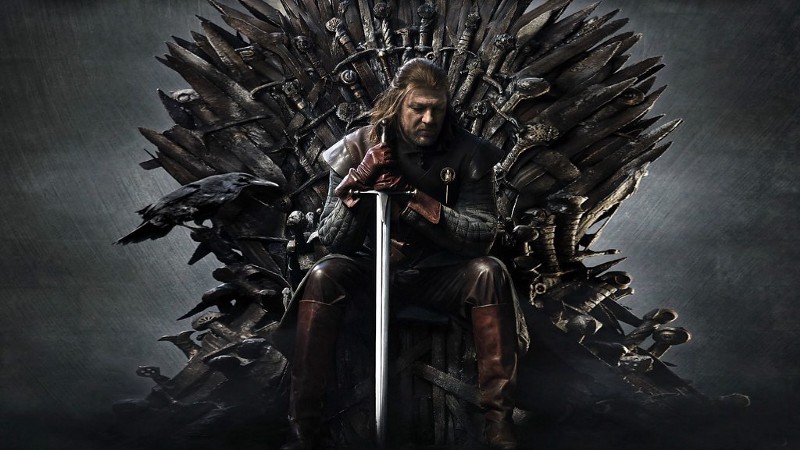Atheism and Feminism in Game of Thrones

Fantasy has long required a suspension of disbelief. While sometimes couched in the language of science, a certain level of faith is required to envision, say, a mysterious force pervading every atom in the universe or time traveling to Tralfamadore. This suspension is the soul of human imagination.
Dragons certainly require a leap of faith, as do the walking undead. And yet, in last night’s finale of Game of Thrones, a continual lack of faith reappeared. Laws of physics and biology might have no sway on these characters, but religion is certainly on the out. In fact, key words for the final stretch of this show appear to be faithlessness and feminism, a rather intriguing dynamic given how often feminine principles and mysticism have been related in the past—fantasy has long relied on ‘goddess energy.’
But we’re not living in the past; good literature (and television) addresses the problems of our day, no matter how imagined the landscapes of fantasy. For too long we’ve witnessed the High Sparrow maneuver his religion into a position of political might. With one slow-burning candle Cersei put an end to the toxic relationship of faith and governance. We can debate the actual degree of the Sparrow’s religiosity. His manipulation of psychology to his own ends is—was—apparent.
Then there’s Melisandre’s existential crisis regarding her relationship with her fire god, provoked by Davos after he stumbled onto Shireen’s burnt stallion. Initially she invokes the hazy commands of an ethereal deity only to come to terms with her miscalculation: ‘I was wrong,’ she admits after rebutting Davos’s assertion that she had lied. Jon Snow shows mercy by allowing her to ride south, an instance of a more grounded religious theme—charity—to combat the metaphysical claims of divine intervention, even if he was internally grappling with her role in his reincarnation.
Finally, and most blatantly, is Tyrion’s agnostic admission to Daenerys. Having just admitted she felt nothing when dumping Daario for a future suitor, she jabs Tyrion by saying that he’s completely failed to console her. He replies,
For what it’s worth, I’ve been a cynic for as long as I can remember. Everyone’s always asking me to believe in things: family, gods, kings, myself. It was often tempting, until I saw where belief got people. So, I said ‘no thank you’ to belief.
He turns his monologue into a soliloquy of allegiance to the dragon mother, but the point is clear. While ‘cynic’ is often presented as a negative, recall its roots with Antisthenes and Diogenes, Greek philosophers that attempted ascetic lives in accordance with nature. Tyrion has rarely shown such lofty ambitions, yet the term—cynic means dog-like—is rooted in a rejection of conventional customs, something the imp has dealt with his entire life.
The biggest complaint when Game of Thrones began involved gratuitous sex and nudity. Every episode included an origami of nude forms as a mark of authenticity—authentic of what, given that this is an invented culture and time. Perhaps that was only a bait and switch, or perhaps the writers have just evolved. Year by year nudity has declined; even a penis was revealed a few episodes ago.
(Why a penis, common in European television, is cause for comedy, while breasts are taken quite seriously, is another question prodding at human psychology.)
The catalyst behind much early sex experienced comeuppance last night. Littlefinger has always used sex and power to his advantage. His attempt at seducing Sansa to achieve the Iron Throne was even more comedic than an errant penis. The helpless Stark has really come into her own over the last two seasons, rivaling her ambitious little sister, Arya, who made a brief appearance to check off another name on her to-do list.
Since day one Cersei has emitted a conniving and relentless strength. There’s a lot of banter about how long she’ll remain Queen Regent, such as speculation that Jaime will abandon her and join Tyrion to end her reign. Of all the women in the show her demise will certainly be enjoyed, but you have to hand it to her: she’s a mountain among men.
And, of course, Daenerys. As stated, she took little issue deposing Daario; she even handled Tyrion’s schoolboy advances well, stoking his fire by making him her Hand. While I wouldn’t reject the possibility of a love affair between the two, she seemed more ready to dive in with Yara Greyjoy than be tempted by any man in her life.
Which, again, is the point: Game of Thrones has taken a decidedly modern, progressive stance under cover of epic bastard battles and dragon bonfires. Lesbianism was a background vice serving as eye candy for male viewers in the first season; now it stands on equal playing field with any other sexual preference. The ultimate power is now at the fingertips of the female and faithless. America has much to learn from this evolution of fantasy.
—
Derek Beres is a Los-Angeles based author, music producer, and yoga/fitness instructor at Equinox Fitness. Stay in touch @derekberes.





